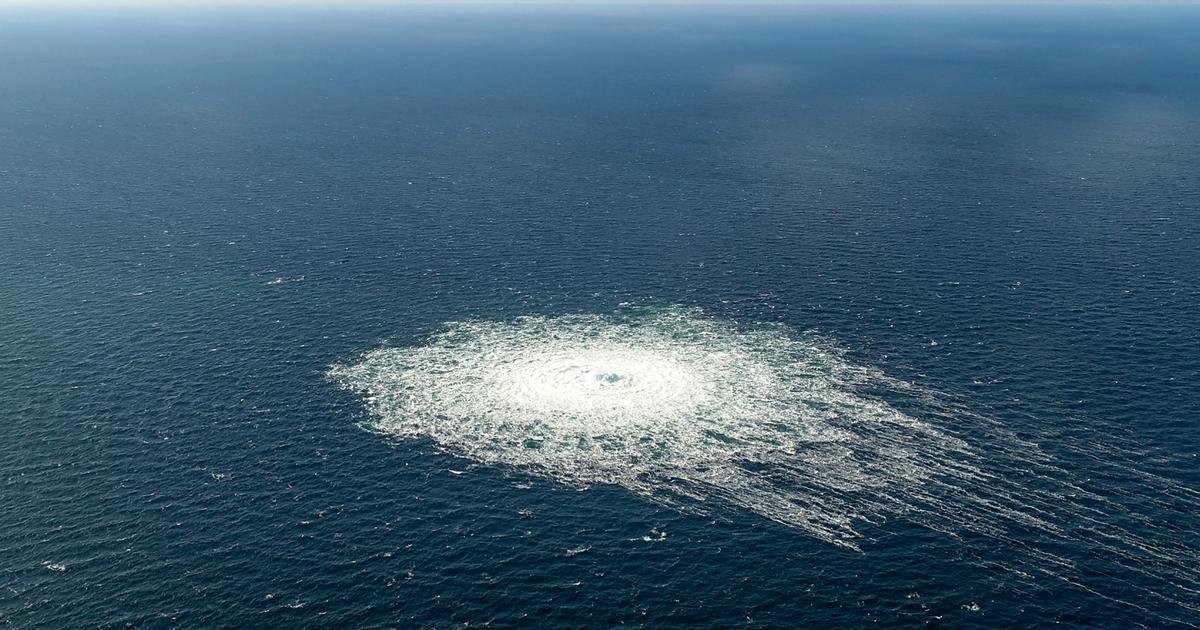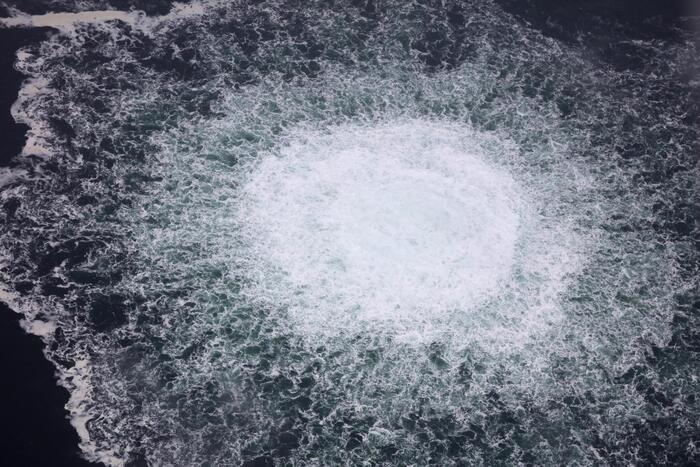Who was behind last September's blowing up of the Nord Stream gas pipeline, which connected Russia with northern Europe, remains a mystery.
But the plot thickens.
New intelligence data points to a pro-Ukrainian group, according to US sources told
The New York Times,
which specify that there are no indications that the saboteurs acted on the orders of the Kiev government or that the president, Volodimir Zelensky, or his top advisers were involved in the operation.
And they indicate that no signs have been detected that point to a Moscow authorship.
Added to the revelations in the American newspaper is the information published in various German media that also points to Ukraine.
Investigators have identified the boat from which the sabotage was carried out, and have verified that it was rented by a company based in Poland but owned by Ukrainian citizens, according to a joint investigation by the weekly Die Zeit and the ARD and SWR
televisions
.
There is no evidence of who ordered the attack, say these media, which have compiled information from the intelligence services of various countries.
They do not rule out that it could be a false flag operation (an operation carried out with the intention of accusing another person or institution of responsibility, and thus creating the pretext for an attack).
The responsibility for the attack against the gas pipeline deep in the seabed of the Baltic Sea is one of the big questions of the first year of war in Ukraine.
Suspicions have fallen, depending on who launched them, on the Government in kyiv ―a staunch critic of the Nord Stream as an alternative to the passage of Russian gas through its territory―, Moscow, London or Washington.
Opponents of Putin
The new data, according to the
Times
, suggests that the perpetrators of the explosion oppose Russian President Vladimir Putin, but "they do not specify the members of the group, or who directed or paid for the operation."
“US government sources declined to divulge the nature of the data, how it was obtained, or details about the credibility of the evidence it contains.
They have said that it does not draw firm conclusions,” the article states.
All this, adds the newspaper, leaves open the possibility that the operation was perpetrated "in the dark", without appearing in the official records, by a front group with connections to the Ukrainian government or its intelligence services.
The sources that have accessed these data consider it most likely that the perpetrators of the attack were "Ukrainians or Russians, or a combination of the two," he points out.
The spectacular attack was a technical boast.
Its authors placed the high-powered explosive charges on the bottom of the Baltic Sea—at what point is one of the unknowns;
it could have been months or even years ago—and detonated them undetected in an area of heavy shipping traffic.
The pipes installed on the seabed, some 70 meters deep, cover a 1,200-kilometre route that crosses the territorial waters of five countries: Russia, Finland, Sweden, Denmark and Germany.
The Nord Stream 2 pipeline, the most recent gas pipeline —its construction was completed in 2021, a decade after the original pipeline, Nord Stream 1— measures 1.1 meters in diameter and the thickness of its walls is 4.1 centimeters.
A yacht with six people on board
The German media investigation offers many more details about the alleged perpetrators and the operation.
A group of six people – five men and one woman – set sail from the German port of Rostock on September 6, 2022 on a yacht.
The equipment to carry out the blasting of the gas pipelines had previously been transported to the port in a truck.
Investigators managed to locate the ship the next day in Wieck, near Rostock, and later on the Danish island of Christianso northeast of Bornholm.
The boat was returned to its owner uncleaned, which made it possible to find traces of explosives on the table in the cabin, these media added.
The team consisted of a captain, two divers, two diving assistants and a health worker, and their nationality is not clear, because they used false passports to charter the yacht.
German media reports point to the possibility that traces may have been deliberately planted to point to Ukraine, although there is no evidence of such a scenario either.
European sources consider that, given the level of complexity of the sabotage, its perpetrators must necessarily have had the backing of a government.
According to sources cited by the
Times
, the explosives were likely planted by "experienced submariners" who do not appear to have worked for any military or intelligence services.
But they could have received specialized training from a government.
A link between the attack and the Ukrainian government, even indirectly, could complicate the delicate balance in Western support for Kiev, at a time when the allies are carrying out intense contacts to maintain a united front and public opinion in countries like the US. The US seems to cool down around the abundant and expensive military assistance in the conflict, which has already been over a year and with no end in sight.
In particular, it could complicate support from Germany, which since the start of the war has been forced to cut its hitherto heavy dependence on Russian gas (60%) and, like the rest of Europe, has seen gas prices skyrocket. energy, among other consequences of the Russian invasion.
After the sabotage, the initial theories in Washington and European capitals pointed to the responsibility of Russia.
But it is not clear what benefit Moscow would get from blowing up a source of fat revenue and valuable influence over Europe, and American sources have indicated, according to the Times,
that
no indication that the Kremlin might be behind the coup has been detected.
Moscow, which denies any involvement, has pointed to the United Kingdom as responsible for the sabotage, without providing evidence.
Weeks before the invasion, during a meeting in Washington with German Chancellor Olaf Scholz, US President Joe Biden had warned that if Russia finally invaded Ukraine – as Washington warned the Kremlin was planning to order – and “tanks and troops cross the border, then there will be no more Nord Stream 2″.
"We will put an end to it," he said then.
The Scholz government suspended certification of the controversial infrastructure just before the Russian invasion.
Journalist Seymour Hersch has relied in part on those statements to attribute responsibility for the attack to the United States in an article published last month.
Washington maintains that there was no US participation in the attack and that neither Biden nor his advisers authorized any operation to destroy the gas pipeline.
The spokesman for the White House National Security Council, John Kirby, avoided commenting on the new evidence on Tuesday and referred to the investigations carried out by three European countries -Germany, Denmark and Sweden- about the explosions, of for which no conclusions have yet been published.
A spokesman for the German Chancellery has also reiterated that the investigations have not yet yielded results.
Kirby has specified: “We believe, as President Biden himself has said, that it was an act of sabotage.
We must let those investigations finish and only then will we consider what kind of response actions may or may not be appropriate.”
According to the
Times
, intelligence services and US government sources acknowledge that their access to the decision-making process in the Ukrainian government is limited.
“Ukrainian officials are not always transparent with their American counterparts about their military operations, especially those against Russian targets behind enemy lines.
Such operations have frustrated the Americans, who consider that they have not particularly improved Ukraine's battlefield positions, but have created the risk of upsetting the European allies and widening the war, ”he notes.
These operations include an attack on a Russian air base in Crimea and the partial destruction of the bridge over the Kerch Strait that connects that peninsula illegally annexed by Moscow in 2014 with Russia.
Follow all the international information on
and
, or in
our weekly newsletter
.

/cloudfront-eu-central-1.images.arcpublishing.com/prisa/TN7KKJATG34S5CO776AA3VSECE.jpg)



